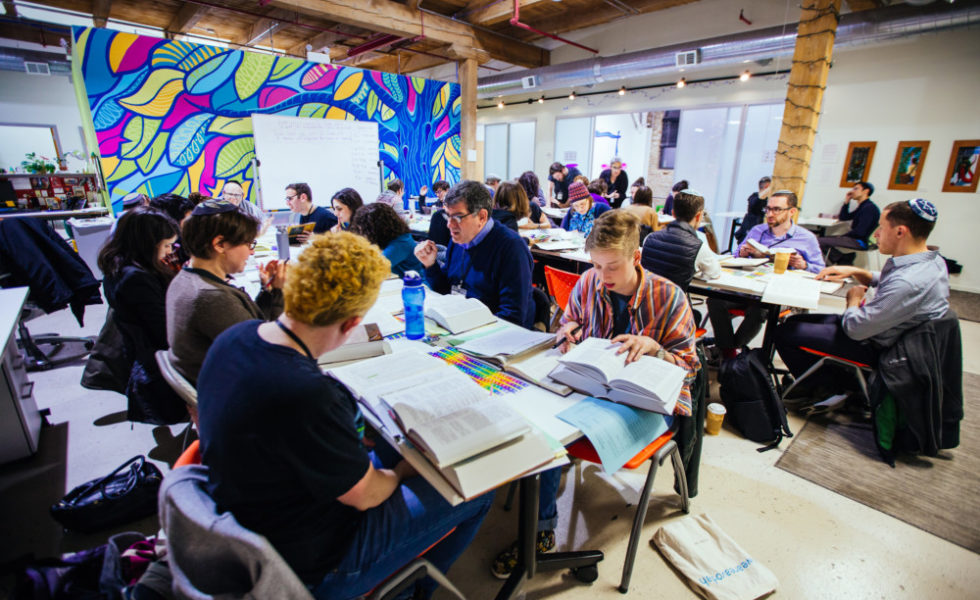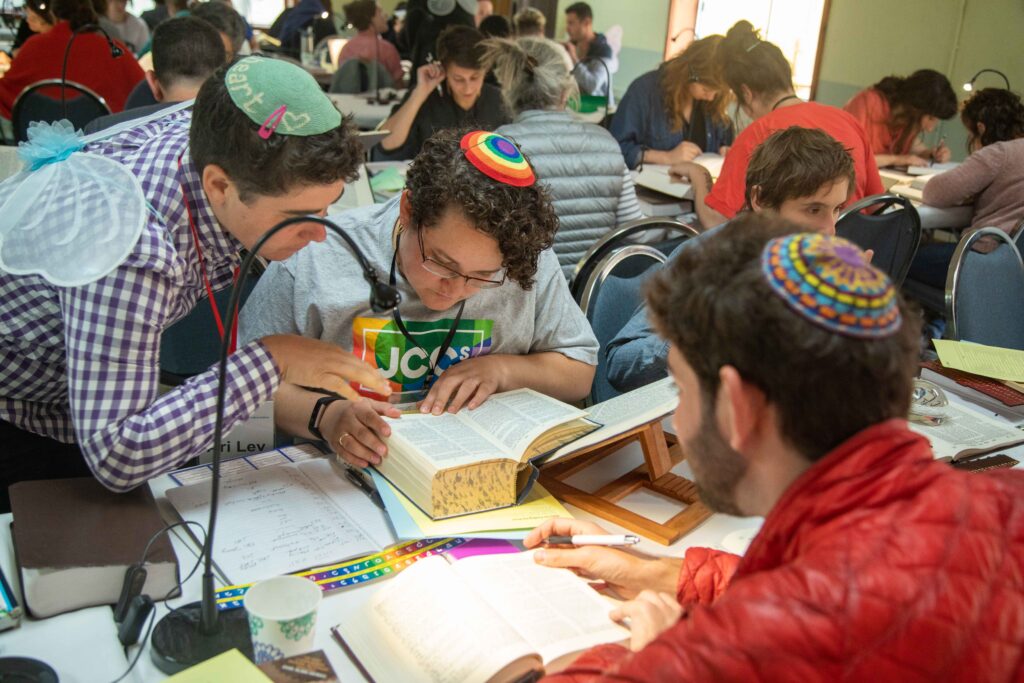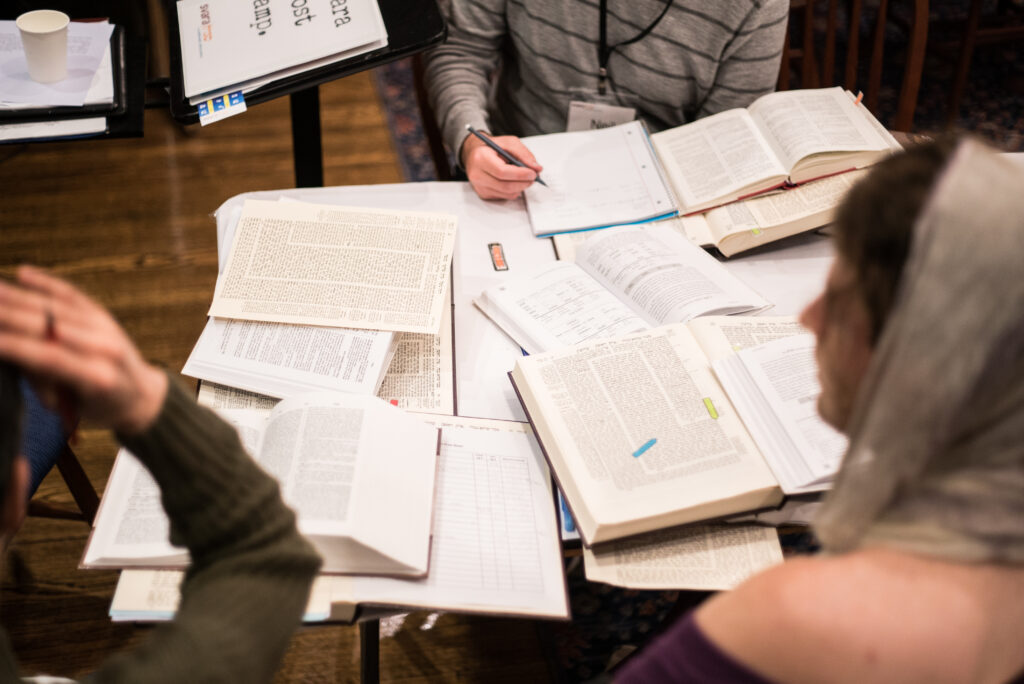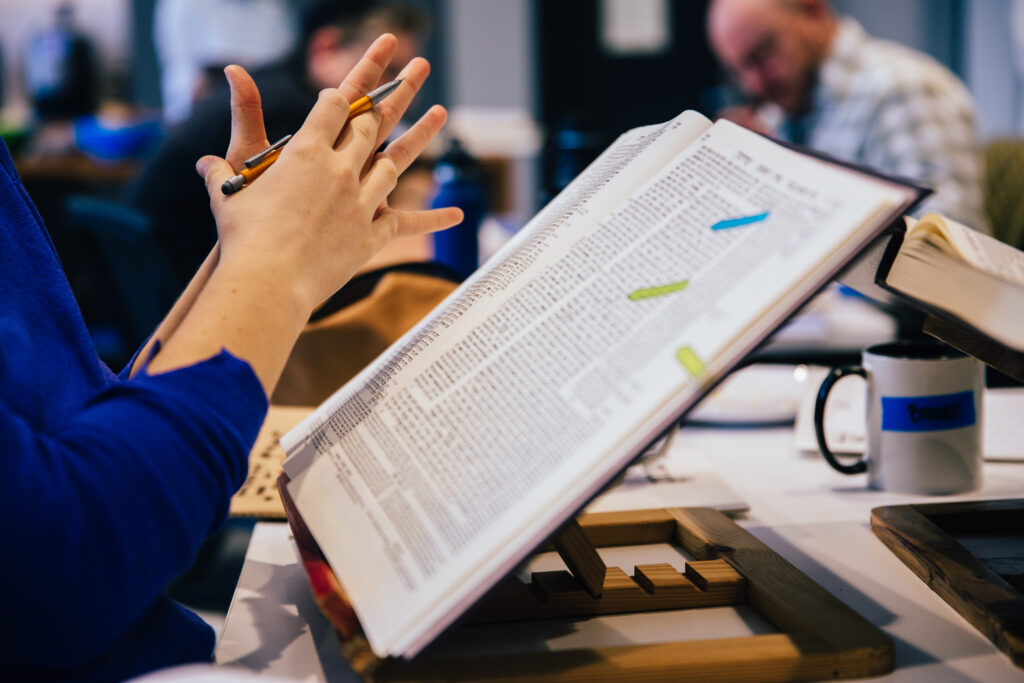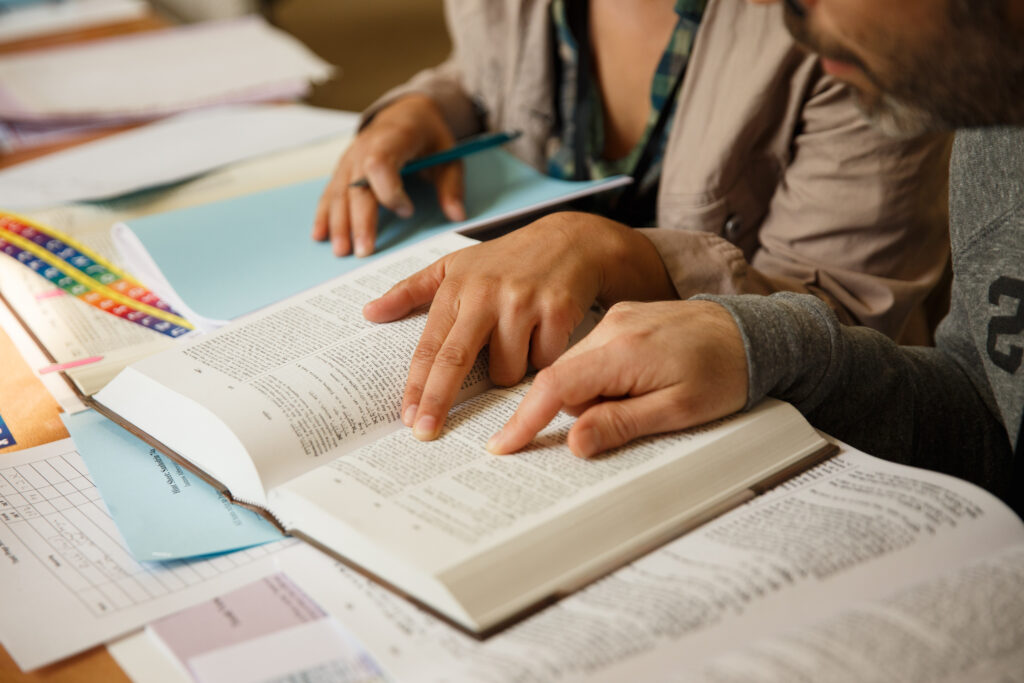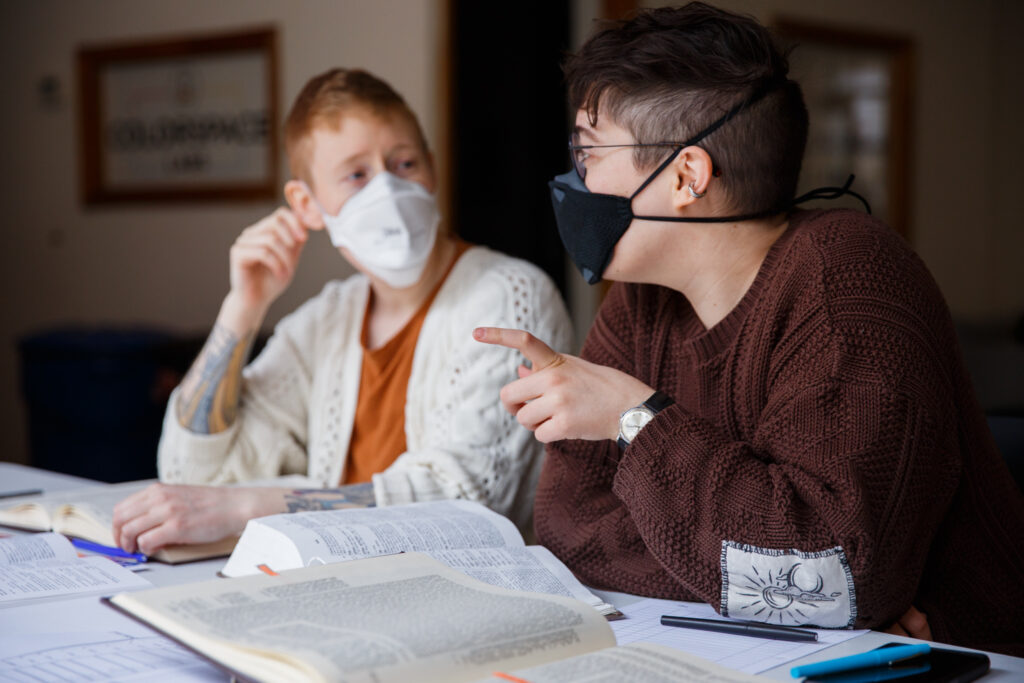A Note from Team SVARA: The past few weeks have been fraught and tumultuous–in the world, and in the Jewish community. SVARA, as a yeshiva, is a home for queer and radical Torah where all are learners and teachers. We welcome and hold many different voices and perspectives in our community, on a range of things, including related to Israel/Palestine. And at the same time we are unified in our commitment to learning and building toward an unrecognizable future together, one that is deeply rooted in Jewish tradition and the lineage of the Rabbis. It is in the spirit of this commitment to learning that we are called to share an excerpt from the letter Benay sent earlier this week to the SVARA-niks who wrote and signed Gates of Tears. May we all continue to stretch and expand, to learn from and teach each other, and to ground ourselves in this sacred queer learning community.
אָמַר רַב נַחְמָן בַּר יִצְחָק לָמָּה נִמְשְׁלוּ דִּבְרֵי תוֹרָה כְּעֵץ שֶׁנֶּאֱמַר עֵץ חַיִּים הִיא לַמַּחֲזִיקִים בָּהּ לוֹמַר לָךְ מָה עֵץ קָטָן
מַדְלִיק אֶת הַגָּדוֹל אַף תַּלְמִידֵי חֲכָמִים קְטַנִּים מְחַדְּדִים אֶת הַגְּדוֹלִים וְהַיְינוּ דְּאָמַר רַבִּי חֲנִינָא הַרְבֵּה לָמַדְתִּי מֵרַבּוֹתַי
וּמֵחֲבֵירַי יוֹתֵר מֵרַבּוֹתַי וּמִתַּלְמִידַי יוֹתֵר מִכּוּלָּן
Rav Nachman bar Yitzchak said: Why are words of Torah compared to a tree, as it is stated: It is a tree of life to those who strengthen themselves in it” (Proverbs 3:18). This verse teaches that just as a small piece of wood can ignite a large piece, so too, students of Torah can sharpen great teachers. And this is precisely what Rabbi Ḥanina was referring to when he said: I have learned much from my teachers and even more from my comrades, but from my students I have learned more than from all of them.
Talmud Bavli Taanit 7b
As you’ve heard me teach many times, the Rabbis tell us that to become players—those who reshape our tradition to make it better—you need two things: gemara, deep learning and internalization of the teachings of our tradition, and svara, the moral intuition that lives inside of us, that is an outgrowth of our lived life experiences, our broad exposure to and direct experience with people who have different experiences from us, and which is then expanded by our empathy, and further shaped and refined by that deep learning. As I read your letter, it was obvious to me that you all are living the Torah that you have learned in the bet midrash.
Svara is the ultimate subverter of the status quo, and is the muscle we flex when we are open to the life experience of those who are more on the outside than we are, those whose suffering tells us “where to dig” to do the excavation—and elevation—work necessary on behalf of their liberation and the liberation of all of us. The Rabbis’ elevation of svara to the level of Torah itself, and their legacy of the record of how boldly and courageously they used their svara to radically reconfigure the tradition, time and again, models for us the most traditional of ways to let old stories die for the sake of a bigger Torah and a more liberated future. As you have let your hearts break to feel the suffering you are calling us all to heed, you are leading with your svara. This is precisely what you should be doing. And I am proud of each and every one of you for doing it. Proud and humbled.
When you are being as courageous and as bold as you need to be, know that you will, of course, make some of your teachers uneasy, and some of them angry. That’s OK. As rabbis and cantors in training, your job is to inherit the tradition that was given to you, and to make it better. We, your teachers, have done and will continue to do what we can to make the tradition we inherited from our own teachers more just, more bold, more honest, and more liberatory. And we have put our trust in you to take the tradition even further–to use your Torah and your svara to continue to refashion it, to reshape it, and to make it better, in order to bring us closer to a world that we, your teachers, could never have imagined–an unrecognizable Jewish future that will, inevitably, be better for all of us. And for all people.
Many of your teachers became teachers of Torah because we loved and were invested in the tradition as we inherited it, and then became deeply invested in the tradition that we messed with and taught to you. And some of us have deep attachments to elements of the way it looks now. But to teach in an era of “crash” is to know, from the get-go, that the future that you, our students, are ushering into being will be profoundly different from the one that we have handed to you, just as much of what we have taught you would have been unrecognizable to our own teachers, and certainly to the Rabbis who entrusted us with the their tradition and the power to alter it, even radically, as they did, to ensure that it live out its vision of justice and liberation, better and better, in each generation.
If we, your teachers, are doing our jobs right, you, our students, will critique, subvert, and transform the aspects of what Judaism has been that your svara tells you don’t move us towards freedom and liberation. It is our responsibility to fortify you and support you as you demand that what should be, becomes what is. And if and when your insights and your application of the Torah that we have learned together becomes different from ours, your teachers’, it is our responsibility to listen, and to learn from you. Your Torah will inevitably challenge us, shake us up, agitate us (if it doesn’t, you are not being brave enough or bold enough). Our job is to teach you, to trust you, to learn from you, and then to get out of your way. Being invested in the future of our students and your growing leadership means that we trust you to bring the future that is needed into being better than we could. To do that, we, your teachers, have to hold our truths lightly, knowing that it is you, our students, who will be able to see bigger truths than we are able to, and will teach those bigger truths back to us. [And, of course, you will have to hold your truths lightly as well, as you raise up students who will shake them up.]
The Rabbis of the Talmud were clear about what was non-negotiable for them; that’s what you need to know when you’re messing with a tradition that is in deep transformation, one that you’re growing to accommodate the broader fulfillment of an old value or the incorporation of a new one. Our Sages’ most foundational principles—the injunction to transgress Torah to save a life, the commitment to honoring the dignity of all created beings as a highest value, the notion that there should be one single law for everybody, among so many others—were once foreign to our people, and are now the guideposts of Jewish life and learning. The Rabbis took what seemed non-negotiable to their predecessors and, as they saw those things crashing, created new non-negotiables in their place–but non-negotiables that they also transmitted alongside the tools, davka, to re-negotiate them!
We trust that you all will use the Torah you’ve learned, and the svara you’ve developed in your life, which you’ve refined through your learning, to bring change to the world in ways we never could have imagined.

